Academic Papers by the Expert Team of Taipei Veterans General Hospital AI Impact Research Center
Taipei Veterans General Hospital AI Impact Research Center is dedicated to promoting the application of AI technology in the medical field and actively publishes academic papers to share its research results. These papers cover clinical trial results, economic benefit analysis, algorithm optimization techniques, and policy recommendations, demonstrating the center's profound research capabilities in the field of medical AI. The following details the center's achievements and related papers in various research areas:
20+
AI-SaMD Development Projects
Multiple
TFDA Registered AI Medical Products
Interdisciplinary
Publications in High-Impact Journals
I. Taipei Veterans General Hospital AI Medical Achievements
Taipei Veterans General Hospital's achievements in the field of AI medicine are widely recognized, and we continue to promote multiple AI innovation projects:
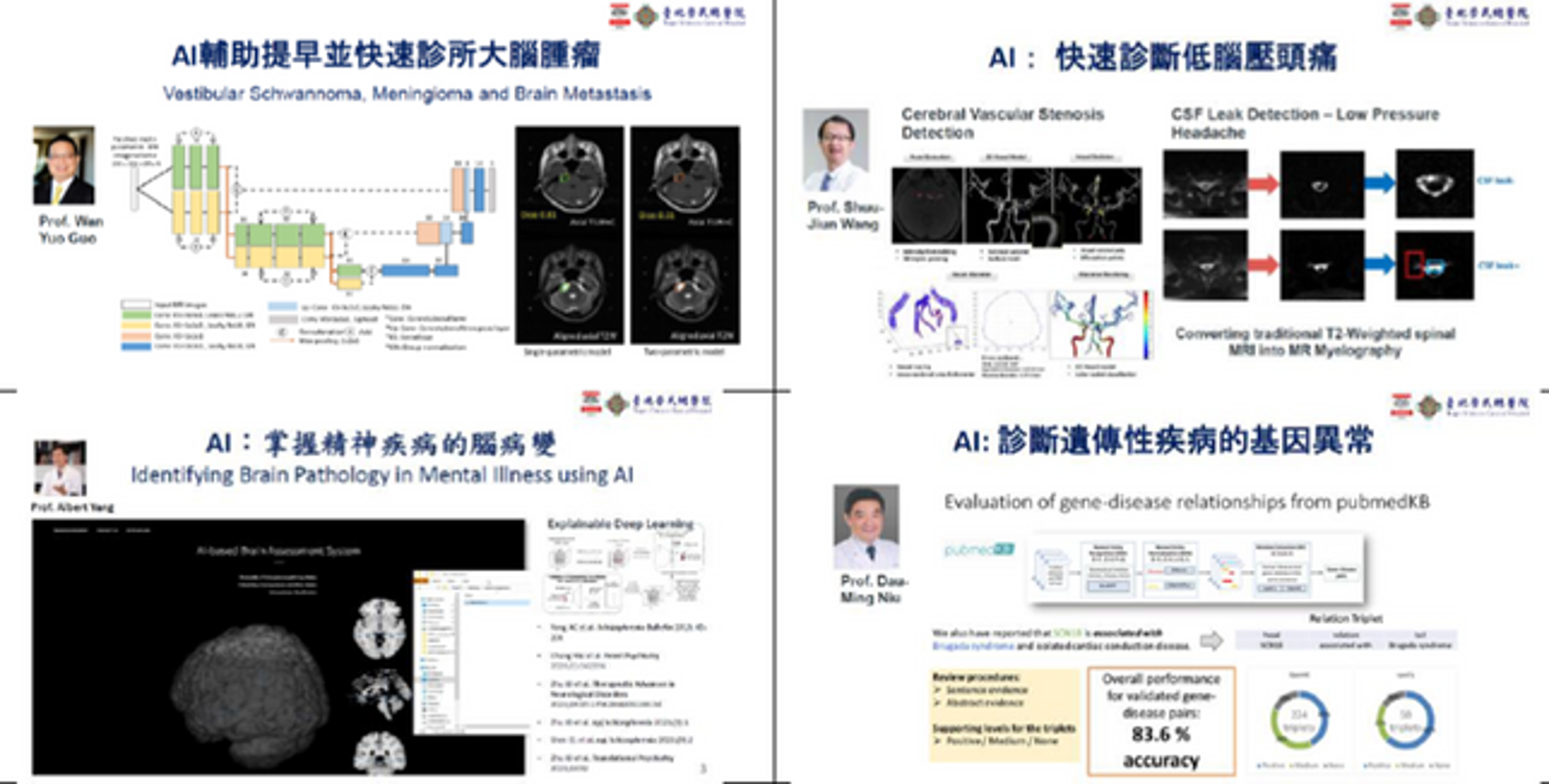

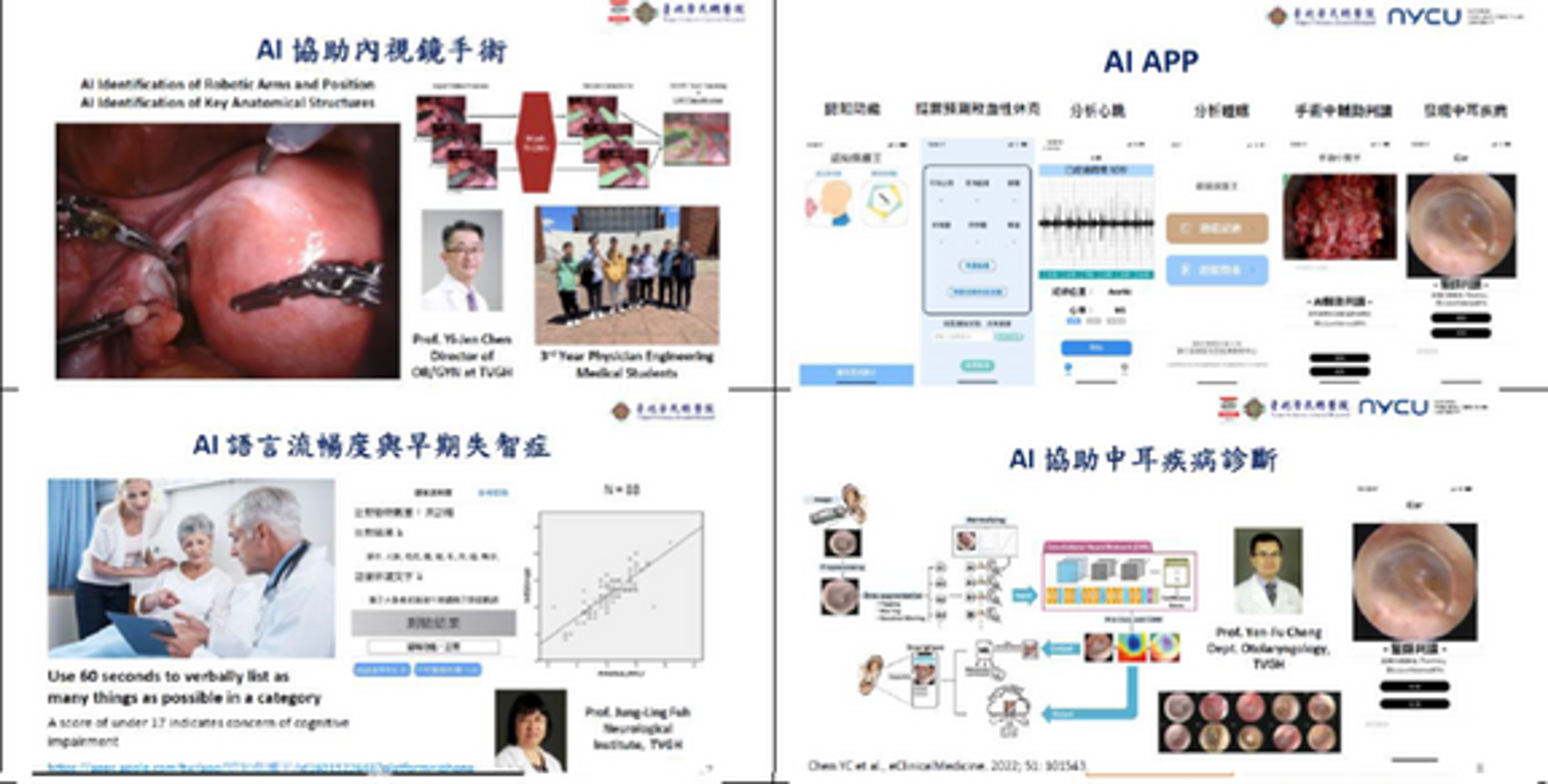
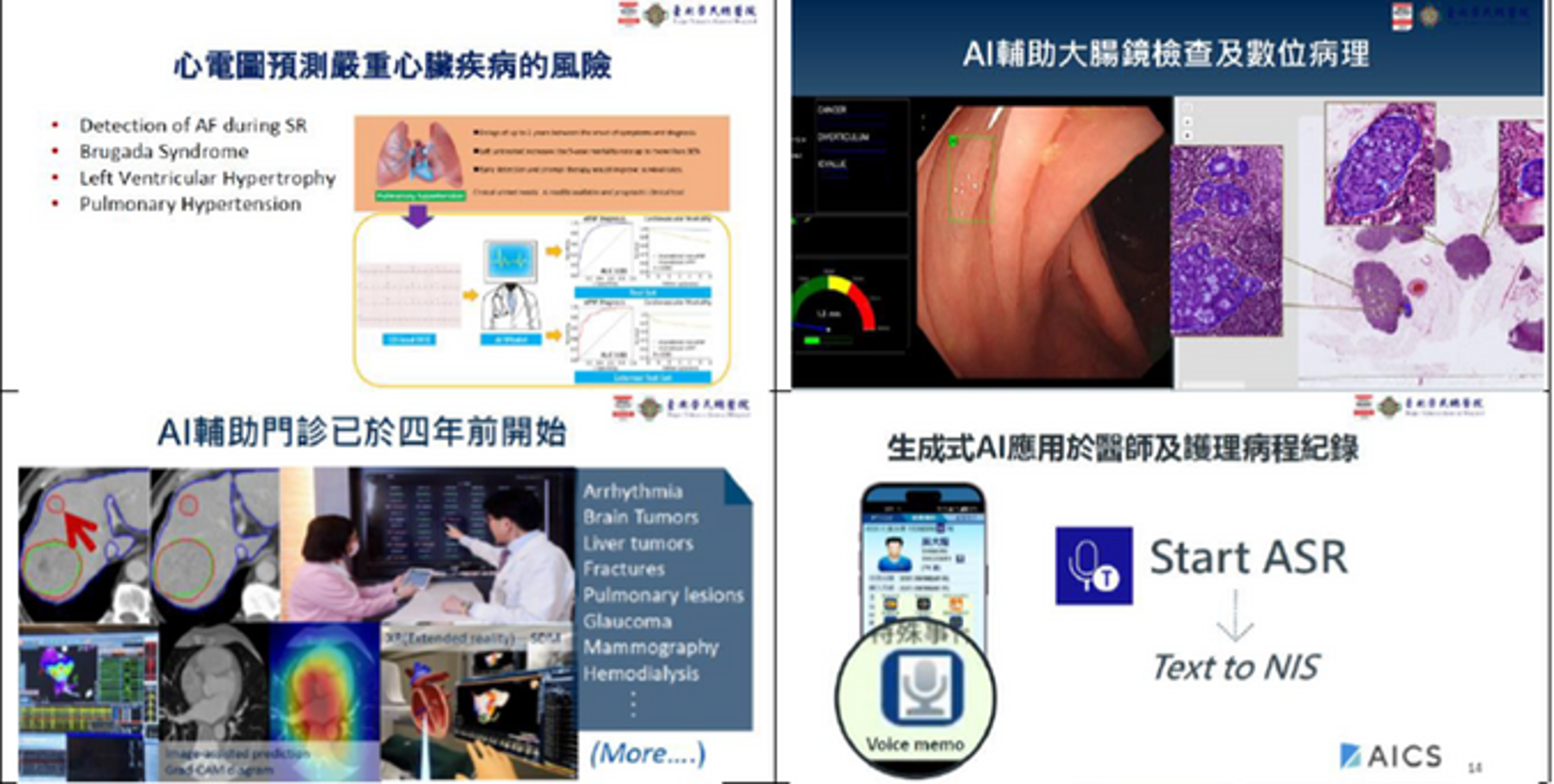
II. Clinical Trial Results
Taipei Veterans General Hospital AI Impact Research Center has successfully completed and published multiple prospective clinical trials, confirming the diagnostic value and clinical benefits of AI technology in the medical field:
Smart Medical RAPID AI
This system demonstrates high accuracy in emergency stroke image interpretation, improving treatment timeliness.

Brain Tumor AI-Assisted Interpretation System
This system assists neurosurgeons in precisely analyzing brain tumor images, enhancing diagnostic efficiency and shortening preoperative assessment time.

Intelligent Brain Imaging Mental Disorder Assessment Platform
This platform combines brain MRI and AI technology to identify early features of mental disorders in advance, improving diagnostic accuracy and supporting clinical decisions for psychiatrists.

III. TFDA Registered AI Medical Product Research
Our research team is dedicated to developing AI medical software that has obtained certification from the Taiwan Food and Drug Administration (TFDA), promoting the application of quality medical AI products in clinical practice:
MuEn Lung Imaging AI-SaMD
Our lung imaging AI system has demonstrated excellent lung nodule detection effects in clinical trials, effectively assisting radiologists in improving interpretation efficiency.
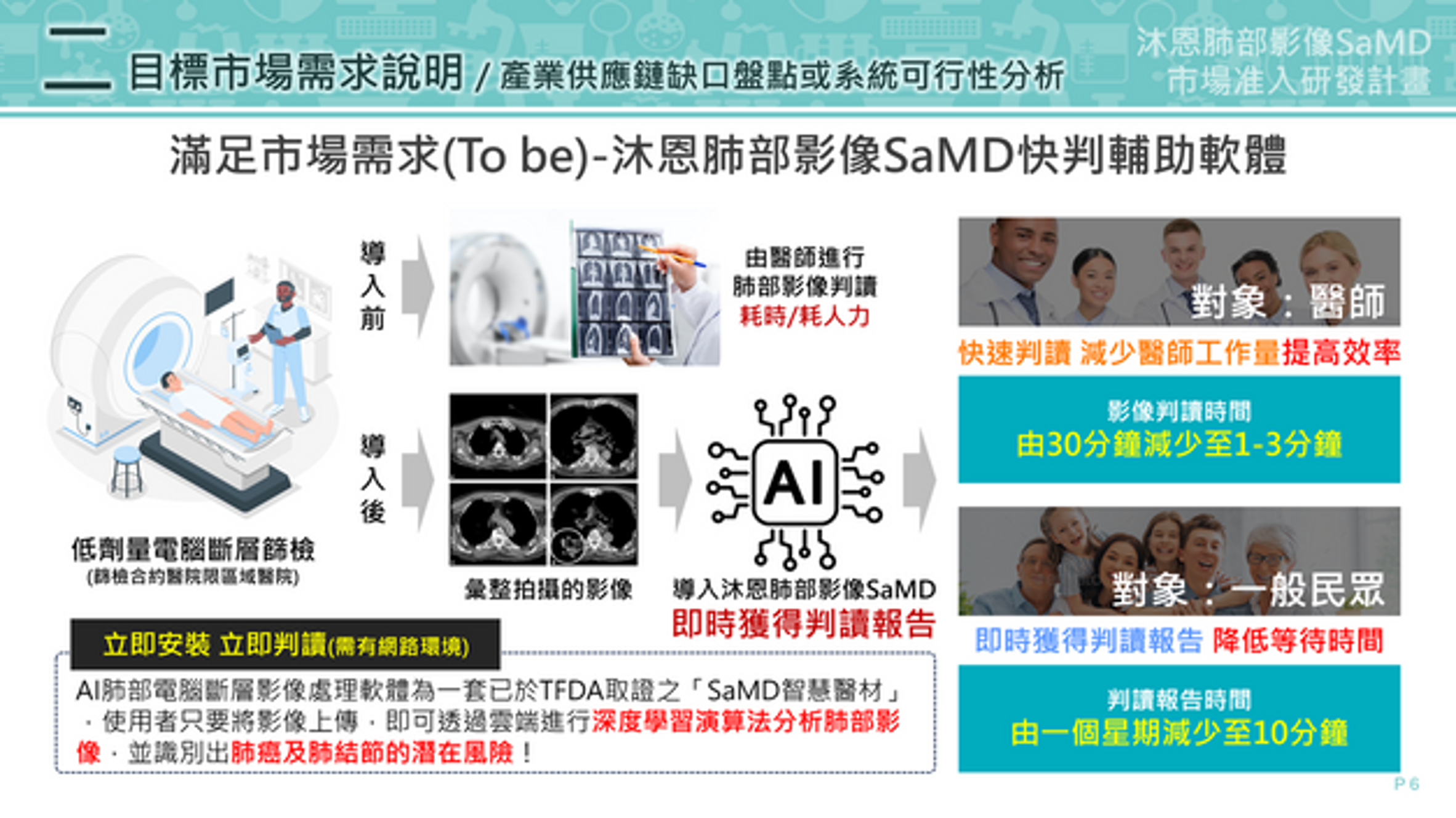
IV. Economic Benefit Analysis
The center not only focuses on the clinical value of AI technology but is also dedicated to evaluating its economic benefits, providing scientific basis for medical resource allocation:
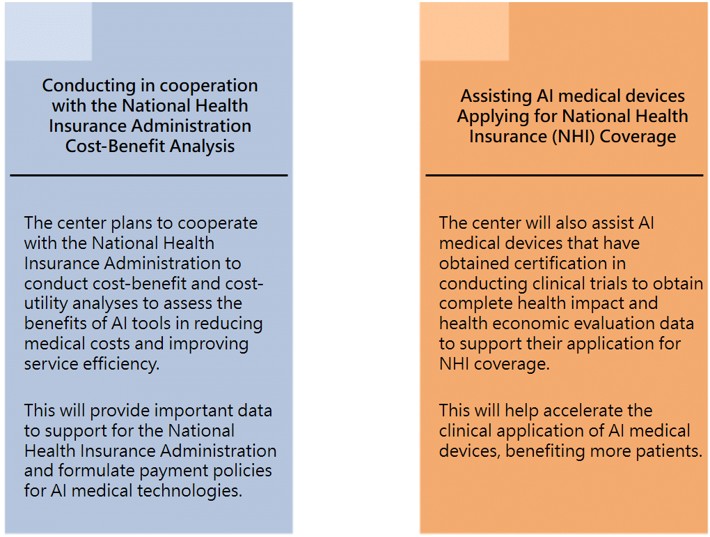
AI Medical Economics Evaluation Framework
We have developed a comprehensive AI medical economics evaluation framework, including direct costs, indirect costs, and health utility dimensions, providing a comprehensive perspective for the value assessment of AI medical products. This framework has been successfully applied to the evaluation of multiple AI-SaMD products.
V. Algorithm Optimization Techniques
We continuously focus on developing trustworthy, high-performance AI algorithms to enhance clinical application value:
0506.jpg)
Explainable Deep Learning Models
Our explainable AI architecture makes medical AI systems no longer a "black box," allowing physicians to understand the AI decision-making process, thereby enhancing physicians' trust and acceptance of AI recommendations. This research outcome has been applied to multiple clinical AI systems, improving the practical application effect of medical AI.
VI. Academic Paper Publications and Research Results
Researchers at our center have published multiple papers in international top journals, showcasing our academic influence in the field of medical AI:
0506.jpg)
- Clinical Infectious Diseases - AI-assisted infectious disease diagnosis system
- Translational Psychiatry - Application of brain imaging AI system in early diagnosis of mental disorders
- Computer Methods and Programs in Biomedicine - Application of explainable deep learning models in medical diagnosis
- eClinical Medicine - Standardized methodology for AI medical product clinical trials
AI Medical Product Clinical Evaluation Research
We have established a systematic AI-SaMD clinical evaluation method to ensure that AI products meet clinical needs and can be effectively integrated into existing medical workflows. This method has been successfully applied to evaluate the clinical value of multiple AI medical products.
VII. Policy Recommendations
Based on rich clinical practice and research, we provide concrete policy recommendations for the development of medical AI in Taiwan:
0506.jpg)
AI Medical Product Regulatory Framework and Health Insurance Payment Mechanism
We have proposed a complete set of policy recommendations for the regulatory framework and health insurance payment mechanism of AI medical products, including tiered management, clinical trial standards, economic evaluation methods, and other aspects. These recommendations aim to promote the healthy development of Taiwan's AI medical industry while safeguarding patient rights and medical quality.